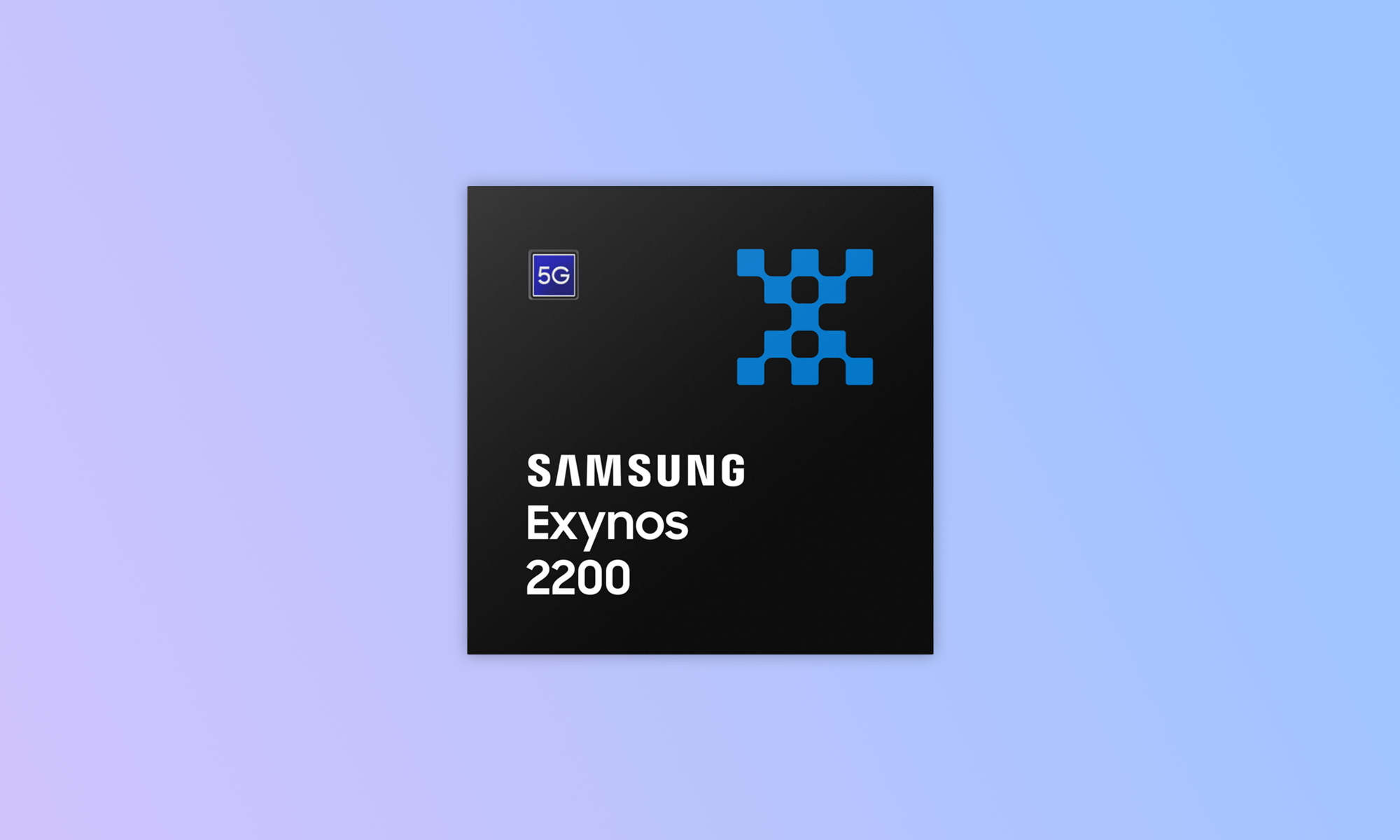News
Samsung’s New Exynos 2200 Smartphone Chip Comes With AMD Xclipse GPU
The new GPU will enable next-level mobile gaming experiences, support 200 MP camera sensors, and ensure smooth performance under all circumstances.

Samsung’s Exynos smartphone series of ARM-based system-on-chips (SoCs) traditionally comes with Mali GPUs, but the company’s new premium SoC is breaking this tradition by featuring an Xclipse GPU with AMD’s RDNA 2 graphics architecture.
The new GPU, together with 8 Armv9 CPU cores (1 powerful Cortex-X2 core, 3 balanced Cortex-A710 cores, and 4 efficient Cortex-A510 cores) and an upgraded neural processing unit (NPU), are supposed to enable next-level mobile gaming experiences, support camera sensors with a resolution of up to 200 MP, and generally ensure smooth performance under all circumstances.
“Built on the most advanced 4-nanometer (nm) EUV (extreme ultraviolet lithography) process, and combined with cutting-edge mobile, GPU and NPU technology, Samsung has crafted the Exynos 2200 to provide the finest experience for smartphone users” said Yongin Park, President of System LSI Business at Samsung Electronics.
Samsung named its new GPU “Xclipse” to reflect the fact that it’s positioned between console and traditional mobile graphic processors. The South Korean conglomerate believes that the GPU will bring an end to the old era of mobile gaming and usher in a new era characterized by features that have until now been associated primarily with PC gaming, such as hardware-accelerated ray tracing and variable rate shading.
Also Read: BlackBerry Has Officially Pulled The Plug On Older Devices
According to David Wang, Senior Vice President of Radeon Technologies Group at AMD, the Xclipse GPU is the first result of multiple planned generations of AMD RDNA graphics in Exynos SoCs, so fans of Samsung smartphones have a lot to look forward to in the future.
In addition to the already mentioned performance-oriented improvements, the Exynos 2200 integrates a better 5G modem capable of achieving speeds of up to 10 Gbps by utilizing both 4G LTE and 5G NR signals at the same time. The SoC’s Integrated Secure Element (iSE) can safely store cryptographic information for enhanced data security and privacy.
The Exynos 2200 is currently being mass-produced, and it’s expected that it will be one of the main selling points of the upcoming Galaxy S22 smartphone.
News
Mamo Completes $3.4M Funding Round To Enhance Fintech Services
The startup will use the influx of cash to expand into Saudi Arabia and across the wider GCC while improving its product offering.

UAE-based fintech Mamo has announced the completion of a $3.4 million funding round that will help the startup extend its market presence and improve its product offering. Investors included 4DX Ventures, the Dubai Future District Fund and Cyfr Capital.
Mamo’s platform offers “payment collection, corporate cards and expense management” to help small and medium-sized businesses consolidate and streamline their operations. With the latest influx of capital, Mamo will further develop its comprehensive suite of services and begin testing its product lines in Saudi Arabia, further extending its footprint across the GCC.
Imad Gharazeddine, co-founder and CEO of Mamo, stated: “We’ve been in the market for a while now and are incredibly proud of what our team has achieved. The holistic and expansive nature of our product offering has helped us continue to grow sustainably. This additional funding will allow us to reach our medium-term goals even faster. The support from new and existing investors is a testament to our strong expertise and the ability to deliver on our customer promise”.
Daniel Marlo, General Partner of lead investor 4DX Ventures, added: “We have immense trust in Imad’s vision, leadership and Mamo’s innovative approach to provide a user-friendly and comprehensive financial solution for SMEs that makes financial management more accessible and efficient. We are proud to partner with them and support their mission”.
Also Read: A Guide To Digital Payment Methods In The Middle East
Amer Fatayer, Managing Director of Dubai Future District Fund’s investment team, also commented: “Mamo’s localized product lines serve as an infrastructure for SME payments and spend management in UAE, a segment that is underserved by the country’s current banking infrastructure. The team has taken a product-first approach to consolidating SMEs’ financial journeys and building a fintech solution deeply embedded in a business’s core operations”.
To date, Mamo has raised around $13 million in investment funding and now boasts a team of 30 people. The company’s intuitive financial services platform has allowed over 1,000 businesses to consolidate their financial operations and significantly reduce payment fees.
-

 News4 weeks ago
News4 weeks agoAmazon Prime Day 2024: Get Ready For 6 Days Of Amazing Deals
-

 News4 weeks ago
News4 weeks agoSamsung Unpacked 2024: What To Expect From The July 10 Event
-

 News4 weeks ago
News4 weeks agoCoursera Report Shows Surge In UAE Interest In AI Upskilling
-

 News4 weeks ago
News4 weeks agoMeet Dubai’s Groundbreaking Smart Robot Delivery Assistant














